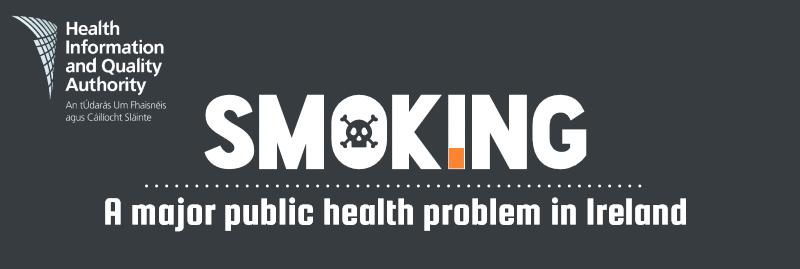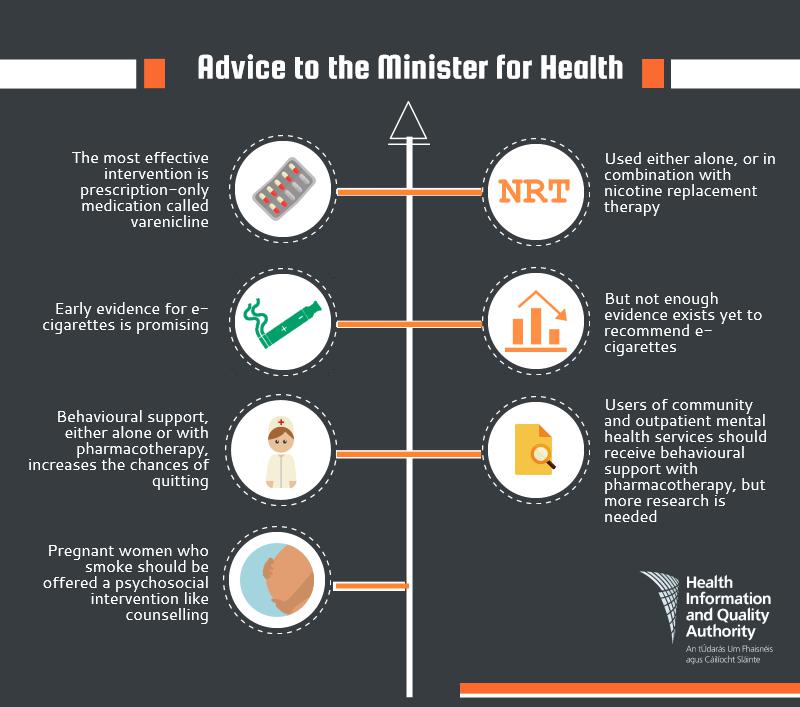HTA of smoking cessation interventions

Foreword
The health technology assessment (HTA) has carried out an independent evaluation of the clinical and cost-effectiveness of smoking cessation interventions, along with an analysis of the wider implications of potential changes to how these services are delivered in Ireland.
To inform policymaking in relation to the provision of smoking cessation services in Ireland. This HTA also provides evidence to support development of a national clinical guideline on smoking cessation.
The Health Information and Quality Authority (HIQA) agreed to undertake a HTA of smoking cessation interventions in Ireland following receipt of a formal request from the National Tobacco Control Advisor to the Department of Health.
This research was carried out in accordance with HIQA’s guidelines for the conduct of health technology assessments. The Terms of Reference of the HTA were agreed between HIQA and the Department of Health. An Expert Advisory Group was convened, with representation from health policy decision-makers, clinicians, patient advocates, professional bodies and experts in health services research and economic evaluation. An Evaluation Team was appointed comprising HIQA staff.
Smoking cessation interventions that are routinely available and used in Ireland were identified and described. A comprehensive review of the safety of these interventions was undertaken, along with a systematic review and network meta-analysis of the available evidence on the clinical effectiveness of smoking cessation interventions among a general population of adult smokers, users of secondary mental health services (defined as inpatient, residential and long-term care for serious mental illness in hospitals, psychiatric and specialist units and secure hospitals and patients who are within the care of specialist community-based multidisciplinary mental health teams), and pregnant women.
An original economic evaluation was performed to estimate the cost-effectiveness and budget impact of prospective changes in the mix of interventions used among the general population of adult smokers to help them quit.
An analysis of the ethical, legal and organisational implications of changes to the provision of smoking cessation services was carried out to identify broader considerations that may influence decision-making.
The complete draft report was reviewed by the Expert Advisory Group, before being made available for public consultation, to give interested parties an opportunity to comment on the draft report before it was finalised.
